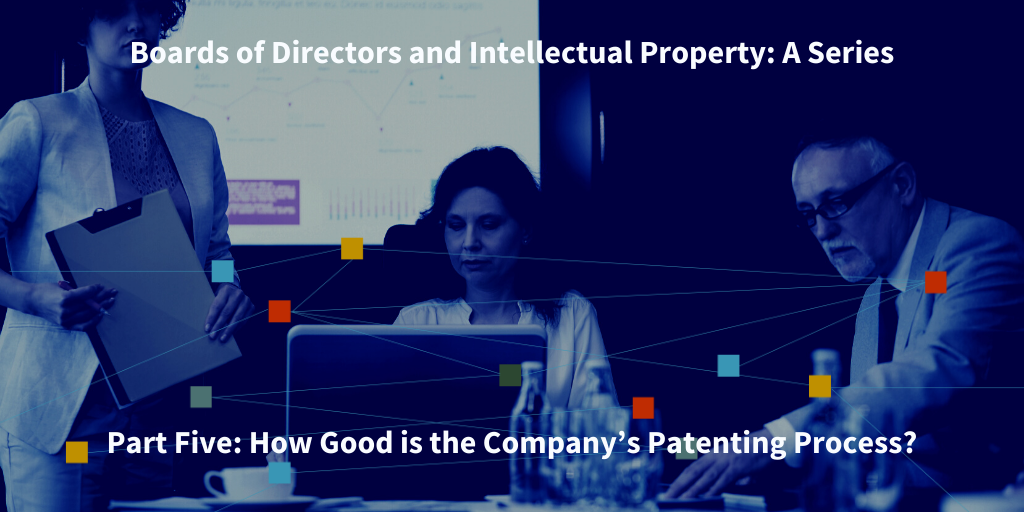We have discussed the importance of intellectual property and the questions that Boards of Directors should ask about their company’s IP. These questions are really an “as is” assessment. What are we spending on R&D—actual and relative to competitors? Are we harvesting the output of R&D and turning it into intellectual property to benefit the stakeholders of the company? These questions are just the beginning.















